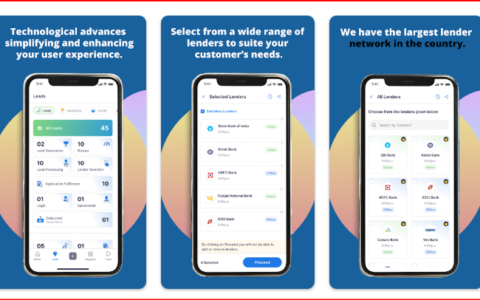As the world slowly opens its doors again, the excitement to dust off our suitcases and embark on long-awaited adventures is palpable. The allure of crystal-clear waters, bustling city streets, and serene landscapes is undeniable.

However, as travel restrictions ease and we eagerly plan our getaways, there’s a less welcome companion lurking in the shadows: holiday fraud. This unwelcome reality can turn dream vacations into nightmares, but fear not! With a sprinkle of vigilance and a dash of know-how, you can protect yourself and ensure your holiday remains blissful.
Let’s navigate the murky waters of holiday fraud together, ensuring your only concern is whether to choose the window or aisle seat.
1. Too Good to Be True? It Probably Is
The first rule of thumb in avoiding holiday fraud is skepticism towards deals that seem too good to be true. Scammers often bait travelers with unbelievably low prices for flights, accommodations, or packages. Before you leap at a seemingly fantastic offer, do a bit of detective work. Check reviews, verify the legitimacy of the company, and compare prices. A little due diligence goes a long way in protecting your wallet and your holiday plans.
2. Secure Websites are Your Best Friend
When it’s time to book, make sure you’re doing so through secure and reputable websites. Look for the padlock symbol next to the URL and ensure the address begins with “https,” signifying a secure connection. This simple check can be the difference between a secure transaction and handing your details over to fraudsters.
3. Be Wary of Direct Payment Requests
A common tactic in holiday scams involves asking for direct payments via bank transfer or through unsecured payment methods. Scammers prefer these because they’re harder to trace and offer no protection for the buyer. Whenever possible, use credit cards or secure payment platforms. These not only provide a layer of security but often come with fraud protection.
4. Keep Your Vacation Plans Offline
In the age of social media, it’s tempting to broadcast our travel plans to the world. However, sharing your itinerary or ticket details online can make you a target for scammers. Keep your holiday excitement to a more private audience and avoid posting sensitive information that could be exploited.
5. Verify Before You Trust
Received an unbelievable last-minute deal via email or phone? Before you act, verify the offer. Contact the company directly using contact information obtained from their official website, not the details provided in the unsolicited message. This ensures you’re dealing with the real deal, not a scammer in disguise.
6. Educate Yourself on Common Scams
Knowledge is power, especially when it comes to holiday fraud. Familiarize yourself with common scams, such as fake rental listings, bogus travel agencies, and phishing emails claiming to be from airlines or travel sites. The more you know, the harder it is for scammers to fool you.
7. Protect Your Personal Information
Guard your personal and financial information zealously. Only provide details when absolutely necessary and to trusted parties. Be cautious of public Wi-Fi networks when traveling, as these can be hotspots for digital eavesdropping. Consider using a VPN to secure your internet connection when making bookings or accessing sensitive information on the go.
8. If It Happens to You, Act Quickly
Even the most cautious traveler can fall victim to holiday fraud. If you suspect you’ve been scammed, act quickly. Contact your bank or credit card provider to dispute charges and report the fraud to the relevant authorities. For guidance and support in navigating the aftermath of holiday fraud, fraud report mintware venture offers a valuable resource, providing tools and advice to help you recover.
The world’s reopening hums with a symphony of suitcase zippers and passport stamps. Crystal-clear waters, bustling cityscapes, and serene landscapes beckon, promising escape and rejuvenation. But as the travel curtain lifts, a discordant note enters the melody: holiday fraud.
Don’t let this unwelcome reality turn your dream vacation into a travel horror story! With a pinch of awareness and a heaping helping of know-how, you can ensure your holiday remains blissfully untainted. Let’s navigate the intricate dance of holiday planning, ensuring your only dilemma is choosing between the window and aisle seat.
Beyond the Glitz: Unveiling the Scammers’ Toolkit – Holiday Fraud
1. The Siren Song of Unbelievable Deals:
Scammers weave a seductive web of impossibly low prices on flights, accommodations, and packages. Remember, if it seems too good to be true, it probably is. Embark on your own travel detective adventure: scrutinize reviews, verify company legitimacy, and compare prices across reputable platforms. A little due diligence saves you heaps of heartache (and money!).
2. Secure Websites: Your Travel Shield:
When booking, remember – secure and established websites are your travel companions. Look for the padlock symbol next to the URL and ensure the address begins with “https,” indicating a safe connection. This vital step shields your precious details from prying eyes, making the difference between a secure transaction and handing over your information to fraudsters.
3. Steer Clear of Direct Payment Traps:
A red flag should wave whenever someone requests direct payments via bank transfers or non-secure methods. Scammers love these options because they offer no buyer protection and are difficult to trace. Opt for credit cards or secure payment platforms whenever possible. Not only do they offer an extra layer of security, but many come with built-in fraud protection.
4. Social Media: Share Wisely, Travel Safely:
Sharing your itinerary and ticket details on social media might seem harmless, but it can make you a target. Keep your travel excitement private and avoid posting sensitive information that could be exploited. Remember, travel bragging can wait until you’re back, safe and sound!
5. Verify Before You Trust: No Blind Leaps!
Received an unexpected offer via email or phone? Don’t jump on it! Verify the legitimacy of the deal by contacting the company directly using official contact information, not details provided in the unsolicited message. This simple step ensures you’re dealing with the real company, not a cunning impersonator.
6. Knowledge is Your Travel Armor:
Educate yourself about common holiday scams. Fake rental listings, bogus travel agencies, and phishing emails masquerading as airlines or travel sites are well-worn tactics. The more you know, the better equipped you are to recognize and avoid them. Check out resources like the Better Business Bureau or the Federal Trade Commission for scam alerts and educational materials.
7. Guard Your Information Like Treasure:
Treat your personal and financial information with utmost care. Only share details when necessary and to trusted parties. Be wary of public Wi-Fi networks, as they can be vulnerable to hackers. Consider using a VPN to secure your internet connection when making bookings or accessing sensitive information on the go.
8. Don’t Panic, Act Swiftly:
Even the most vigilant traveler can encounter holiday fraud. If you suspect you’ve been scammed, react promptly. Contact your bank or credit card provider to dispute charges and report the fraud to the relevant authorities. Resources like the fraud report mintware venture offer valuable guidance and support in navigating the aftermath of holiday fraud, helping you recover from the experience.
In conclusion, as we embrace the return of travel, let’s not forget the importance of vigilance against holiday fraud. By staying informed, questioning deals that seem too good to be true, and protecting our personal information, we can fend off scammers and focus on what truly matters: making unforgettable memories. Safe travels, and remember, a cautious traveler is a happy traveler.



